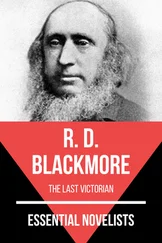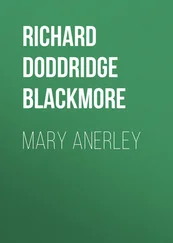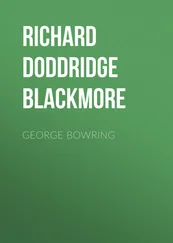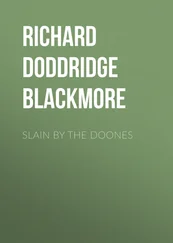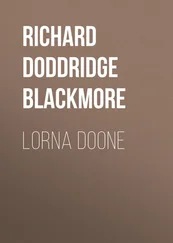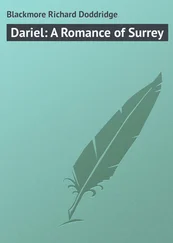Then, with a yell, the boys leap up, or break away from their standing; they toss their caps to the black-beamed roof, and haply the very books after them; and the great boys vex no more the small ones, and the small boys stick up to the great ones. One with another, hard they go, to see the gain of the waters, and the tribulation of Cop, and are prone to kick the day-boys out, with words of scanty compliment. Then the masters look at one another, having no class to look to, and (boys being no more left to watch) in a manner they put their mouths up. With a spirited bang they close their books, and make invitation the one to the other for pipes and foreign cordials, recommending the chance of the time, and the comfort away from cold water.
But, lo! I am dwelling on little things and the pigeons' eggs of the infancy, forgetting the bitter and heavy life gone over me since then. If I am neither a hard man nor a very close one, God knows I have had no lack of rubbing and pounding to make stone of me. Yet can I not somehow believe that we ought to hate one another, to live far asunder, and block the mouth each of his little den; as do the wild beasts of the wood, and the hairy outrangs now brought over, each with a chain upon him. Let that matter be as it will. It is beyond me to unfold, and mayhap of my grandson's grandson. All I know is that wheat is better than when I began to sow it.

Chapter 2. An Important Item
Now the cause of my leaving Tiverton school, and the way of it, were as follows. On the 29th day of November, in the year of our Lord 1673, the very day when I was twelve years old, and had spent all my substance in sweetmeats, with which I made treat to the little boys, till the large boys ran in and took them, we came out of school at five o'clock, as the rule is upon Tuesdays. According to custom we drove the day-boys in brave rout down the causeway from the school-porch even to the gate where Cop has his dwelling and duty. Little it recked us and helped them less, that they were our founder's citizens, and haply his own grand-nephews (for he left no direct descendants), neither did we much inquire what their lineage was. For it had long been fixed among us, who were of the house and chambers, that these same day-boys were all 'caddes,' as we had discovered to call it, because they paid no groat for their schooling, and brought their own commons with them. In consumption of these we would help them, for our fare in hall fed appetite; and while we ate their victuals, we allowed them freely to talk to us. Nevertheless, we could not feel, when all the victuals were gone, but that these boys required kicking from the premises of Blundell. And some of them were shopkeepers' sons, young grocers, fellmongers, and poulterers, and these to their credit seemed to know how righteous it was to kick them. But others were of high family, as any need be, in Devon—Carews, and Bouchiers, and Bastards, and some of these would turn sometimes, and strike the boy that kicked them. But to do them justice, even these knew that they must be kicked for not paying.
After these 'charity-boys' were gone, as in contumely we called them—'If you break my bag on my head,' said one, 'how will feed thence to-morrow?'—and after old Cop with clang of iron had jammed the double gates in under the scruff-stone archway, whereupon are Latin verses, done in brass of small quality, some of us who were not hungry, and cared not for the supper-bell, having sucked much parliament and dumps at my only charges—not that I ever bore much wealth, but because I had been thrifting it for this time of my birth—we were leaning quite at dusk against the iron bars of the gate some six, or it may be seven of us, small boys all, and not conspicuous in the closing of the daylight and the fog that came at eventide, else Cop would have rated us up the green, for he was churly to little boys when his wife had taken their money. There was plenty of room for all of us, for the gate will hold nine boys close-packed, unless they be fed rankly, whereof is little danger; and now we were looking out on the road and wishing we could get there; hoping, moreover, to see a good string of pack-horses come by, with troopers to protect them. For the day-boys had brought us word that some intending their way to the town had lain that morning at Sampford Peveril, and must be in ere nightfall, because Mr. Faggus was after them. Now Mr. Faggus was my first cousin and an honour to the family, being a Northmolton man of great renown on the highway from Barum town even to London. Therefore of course, I hoped that he would catch the packmen, and the boys were asking my opinion as of an oracle, about it.
A certain boy leaning up against me would not allow my elbow room, and struck me very sadly in the stomach part, though his own was full of my parliament. And this I felt so unkindly, that I smote him straightway in the face without tarrying to consider it, or weighing the question duly. Upon this he put his head down, and presented it so vehemently at the middle of my waistcoat, that for a minute or more my breath seemed dropped, as it were, from my pockets, and my life seemed to stop from great want of ease. Before I came to myself again, it had been settled for us that we should move to the 'Ironing-box,' as the triangle of turf is called where the two causeways coming from the school-porch and the hall-porch meet, and our fights are mainly celebrated; only we must wait until the convoy of horses had passed, and then make a ring by candlelight, and the other boys would like it. But suddenly there came round the post where the letters of our founder are, not from the way of Taunton but from the side of Lowman bridge, a very small string of horses, only two indeed (counting for one the pony), and a red-faced man on the bigger nag.
'Plaise ye, worshipful masters,' he said, being feared of the gateway, 'carn 'e tull whur our Jan Ridd be?'
'Hyur a be, ees fai, Jan Ridd,' answered a sharp little chap, making game of John Fry's language.
'Zhow un up, then,' says John Fry poking his whip through the bars at us; 'Zhow un up, and putt un aowt.'
The other little chaps pointed at me, and some began to hallo; but I knew what I was about.
'Oh, John, John,' I cried, 'what's the use of your coming now, and Peggy over the moors, too, and it so cruel cold for her? The holidays don't begin till Wednesday fortnight, John. To think of your not knowing that!'
John Fry leaned forward in the saddle, and turned his eyes away from me; and then there was a noise in his throat like a snail crawling on a window-pane.
'Oh, us knaws that wull enough, Maister Jan; reckon every Oare-man knaw that, without go to skoo-ull, like you doth. Your moother have kept arl the apples up, and old Betty toorned the black puddens, and none dare set trap for a blagbird. Arl for thee, lad; every bit of it now for thee!'
He checked himself suddenly, and frightened me. I knew that John Fry's way so well.
'And father, and father—oh, how is father?' I pushed the boys right and left as I said it. 'John, is father up in town! He always used to come for me, and leave nobody else to do it.'
'Vayther'll be at the crooked post, tother zide o' telling-house.* Her coodn't lave 'ouze by raison of the Chirstmas bakkon comin' on, and zome o' the cider welted.'
* The 'telling-houses' on the moor are rude cots where the
shepherds meet to 'tell' their sheep at the end of the
pasturing season.
He looked at the nag's ears as he said it; and, being up to John Fry's ways, I knew that it was a lie. And my heart fell like a lump of lead, and I leaned back on the stay of the gate, and longed no more to fight anybody. A sort of dull power hung over me, like the cloud of a brooding tempest, and I feared to be told anything. I did not even care to stroke the nose of my pony Peggy, although she pushed it in through the rails, where a square of broader lattice is, and sniffed at me, and began to crop gently after my fingers. But whatever lives or dies, business must be attended to; and the principal business of good Christians is, beyond all controversy, to fight with one another.
Читать дальше


